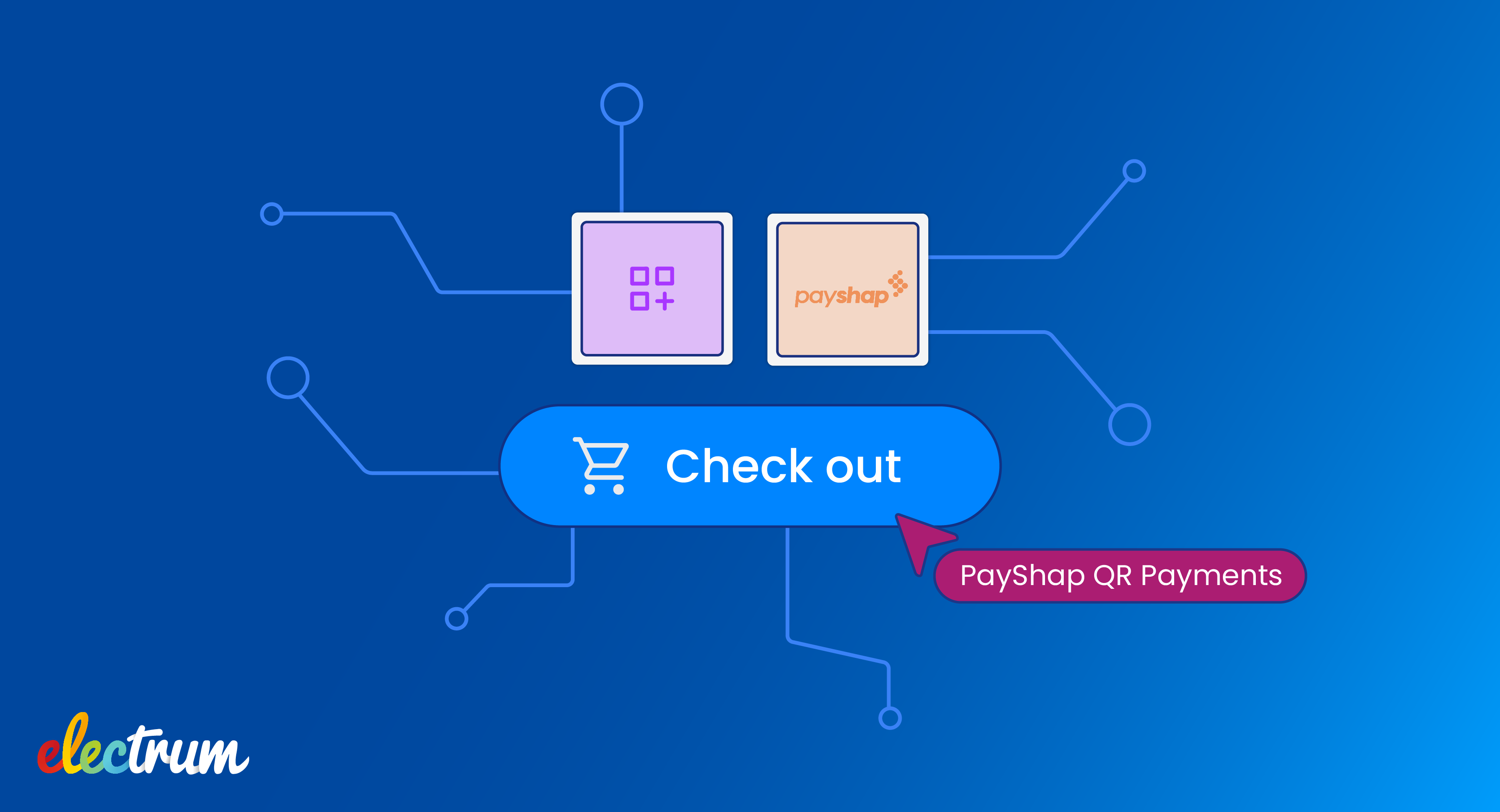
* Updated January 2024
The launch of PayShap is set to change the way South Africans transact. However, with almost 9 out of 10 transactions remaining cash-based, banks and merchants need to examine why current banking innovations aren’t replacing our reliance on cash.
Consumer adoption of PayShap is key to the success of instant payments in South Africa. Understanding that the RPP (Rapid Payments Programme) isn’t designed to replace high-value batch transactions, the main use case for the initiative will be person-to-person lower-value payments. This includes small businesses or entrepreneurs who require payment from their customers.
The objectives of Vision 2025 include increased consumer trust and familiarity with electronic payment systems as a goal. The goals of Vision 2025 are designed to address social challenges such as financial inclusion. Trust, along with three other underlying factors - affordability, ease-of-use, and accessibility - will impact how consumers adopt this new technology.
1. Cost
The undeniable benefit of PayShap is the low cost of making an instant payment for the consumer. Consumers want to be paid immediately and although the individual banks set their own transaction fees, PayShap costs are encouraged to be low.
PayShap Fees Compared

PayShap was officially launched by BankservAfrica with the first cohort of participant banks - Absa, FNB, Nedbank, and Standard Bank - on 13 March 2023. With the launch came the announcement of the transaction fees charged by the banks.
Within 24 hours, FNB reviewed their PayShap fees to ensure that their offering was competitive and more affordable for consumers. It is going to be interesting to see how the pricing strategies of the big four banks play out, and possibly continue to change as consumers react to the service. In a statement, FNB’s EFT Product House Chief, Ravi Shunmugam explained that they expect PayShap transaction prices to decrease over time as the risks and other factors around the system are better understood. He said that cash handling is expensive, and that they hope to translate the benefit of dealing with less cash into lower PayShap transaction fees over time.
Most of the second cohort of participant banks (Capitec, Investec, Discovery Bank, Sasfin, Standard Chartered, and TymeBank) have joined the ecosystem and the scene is being set for healthy competition - which will hopefully play out in the end user’s favour.
BankservAfrica recently celebrated the milestone of 10 million PayShap transactions and 2 million default ShapIDs. Dirk Ehlers (Independent contributor to the Modernised Payments in South Africa Report) commented that ‘the adoption of PayShap is growing as the scheme is becoming more widely recognised. The affordability of making payments below R100 will be a positive driver for consumer usage as these low-value transactions can begin to offer an affordable alternative to cash. With fee structures continuously being revised, more features, convenient points of payment and acceptance may soon be added for PayShap, an exciting space is being created for the digitisation of payments and improved financial services options for South Africans.’
In addition to PayShap fees there is another consideration for South African consumers. We have some of the highest data costs worldwide, a significant barrier to rapid payments adoption is the data costs associated with the bank app or digital wallet. This will need to be considered by all roleplayers in the PayShap initiative, to ensure that this does not limit consumer participation.
2. Trust
When it comes to understanding banking ecosystems, South Africa is a significant case study with our two-speed economy. On one hand, we have one of the most advanced banking systems in the world, while on the other hand, we have a large informal economy that relies on cash.
The majority of the population have bank accounts, although 25% of the population (8.3 million individuals) prefer to withdraw all their money and transact in cash. This is partly due to mistrust of banks and financial institutions. It is widely reported that consumers feel that their money is safer as cash than in a bank account where there could be hidden fees or transaction costs.
There are further consumer concerns over the higher risk of fraud associated with new digital payment types. The drivers behind PayShap need to ensure that the initiative is properly understood and becomes trusted by consumers before it will be a success in South Africa. If not, cash will continue to be the go-to and financial exclusion will remain a challenge for South Africans.
Consumer education and bank marketing are vital to addressing this mistrust of new financial services before we can make strides in improving financial inclusion. Consumers need to be assured that the transaction fees of this new offering are transparent, that fraud concerns are met, and the risk of transacting is mitigated.
3. Ease-of-use
Convenience is core to the design of the RPP, especially when it comes to using mobile numbers as a proxy. However, in order to encourage consumers to adopt PayShap, it is vital that the system is made easy to understand and that the technology is simple for the consumer to use.
Financial inclusion is increasingly being driven by mobile devices with user-friendly apps and digital wallets. It is predicted that digital wallets will account for more than half of all e-commerce payments worldwide by 2024, as buyers shift from card-based to account- and QR code-based transactions. This indicates that worldwide consumers are looking for new, simple digital payment types. But, if the solution is perceived as too complicated then consumers will default back to cash.
Many South Africans receive their wages or salaries in cash, making it more convenient to keep transacting in cash and avoid deposit or withdrawal fees. With the convenience that PayShap offers, if the technology is trusted and more convenient than cash, then entrepreneurs can begin to use instant payments for small wage payments.
4. Accessibility
The lack of financial education across Africa is a key factor in the prevalence of cash across the continent. This results in a gap in the awareness of the hidden costs involved in the reliance on cash - such as the cost of transportation to draw or deposit cash, the loss of interest, and security risks.
This low digital literacy limits access to newer solutions for consumers. When they don’t find new financial technology offerings intuitive they revert to what they know and fail to find digital alternatives. Again, education can help consumers with awareness of the banks’ offerings, fees, and benefits of using the PayShap product.
With all new systems, the Network Effect (unpacked more in our real-time payments blog) will have a big impact on user adoption. It becomes a chicken-and-egg type scenario where consumers find limited infrastructure and merchant or bank buy-in and therefore are reluctant to embrace the technology. Whereas banks and merchants do not see the financial benefits of implementing new systems until consumers are fully using the systems.
For the PayShap programme to be a success, there needs to be widespread industry implementation to encourage consumer adoption and country-wide use.
The massive success of Unified Payments Interface (UPI) in India and PromptPay in Thailand gives an indication that this instant payments programme can work here. Affordability, combined with an easy-to-use system and consumer convenience, will result in PayShap being successful as an alternative to cash with widespread consumer adoption.
Has your bank started thinking about their instant payments offering? Chat with us today to explore how we can help you get your solution to market quickly.

Helen Whelan
Helen Whelan is a Senior Content Writer at Electrum. With a BSc (Hons) from Rhodes University, she enjoys the combination of creativity and technical topics that content creation at Electrum involves. Cats and coffee fuel her day.
Electrum Newsletter
Quarterly insights and news to help you keep up with the latest changes in the payments landscape







